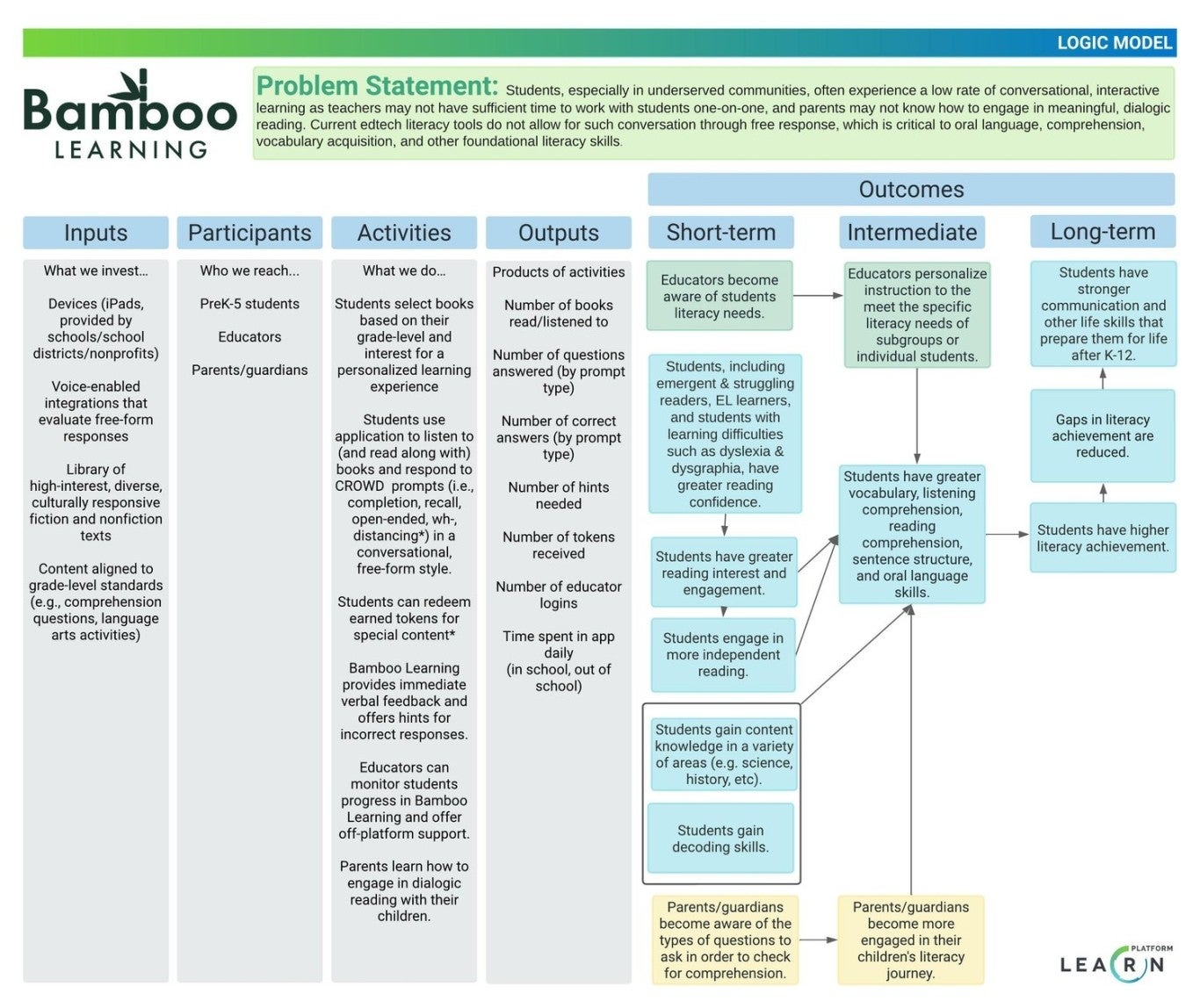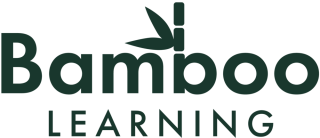Research and evidence are the driving forces that allow education leaders and decision makers to understand the effectiveness of a particular edtech tool and make purchase and implementation decisions with confidence. Bamboo Learning EDU (Bamboo Learning), a voice-enabled application serving grades K-5 to boost listening and reading comprehension, wanted a way to gather, analyze and share evidence with prospective customers but lacked the bandwidth and expertise to do the research internally.
Since its founding, the team at Bamboo Learning focused on innovation based on research as a core tenet of its product development. Its solution, an interactive voice-enabled supplemental literacy program for K-5 students, aimed to tap into young learners’ natural adaptability and instinct to use voice recognition technology.
Challenge
With research as its guiding focus, the Bamboo Learning team wanted to not only offer a product that was engaging and interactive but also that delivered the expected outcomes. Additionally, the team wanted to ensure its product was effective for various student populations, making it essential that any research they did take into account demographics. This meant considering variables such as comprehension levels, student backgrounds and literacy environments. The ultimate question for the Bamboo Learning founders: how does Bamboo Learning build a product that works for all learners?
To build an innovative, effective, and equitable product in edtech, we knew that any instruction, content and functionality we offer has to be research- and evidence-based, so that our product is rooted in innovation and research.
Irina Fine
Co-founder and Chief Content Officer
Bamboo Learning
Working with Third-Party Research Partner, LearnPlatform
To start, Bamboo Learning partnered with researchers at LearnPlatform to build a logic model, or theory of change, to clearly show intended product outcomes and how to achieve them. The logic model provides a foundation of evidence needed to easily convey what the product is delivering to learners, including intervention, grade level and/or accelerated learning. Developing a logic model also was a necessary step to meeting the requirements of the Every Student Succeeds Act (ESSA), Level IV - Demonstrates a Rationale, making it the jumping-off point for Bamboo Learning’s evidence journey.

Continuing the Ongoing Evidence Journey
Once the Bamboo Learning team had a shareable, explicit logic model, it decided to conduct a study within an ongoing pilot program, to further validate its logic model and product goals. During the pilot, researchers noted that 30% of the students were eligible for free or reduced lunch, and 60% of all of the students were part of a minority population, making it a match with the company’s goal to ensure the product worked with diverse students.
Pilot Study Key Takeaways

LearnPlatform designed and executed a study aligned with ESSA Level III evidence standards, providing critical findings to drive the Bamboo Learning product roadmap and its ongoing research agenda. LearnPlatform researchers examined Bamboo Learning’s usage data, relationships between usage and outcomes, and investigated the impact of Bamboo Learning EDU application on reading attitudes and achievement. The results showed the product meets the standards to qualify as ESSA Level III certified and set the stage for future research.
When I share data and user feedback, peoples’ eyes light up. It's nice to hear data proving that we are building something that is effective, enjoyable and user-friendly for students, teachers and families.
Irina Fine
With the ESSA Level III report, Bamboo Learning is able to take the research and apply it to its own product design and implementation recommendations. Being ESSA Level III certified verifies that the solution provider shows promising evidence of effectiveness with its product, according to the guidelines set by the U.S. Department of Education, and allows the Bamboo Learning team to convey to its partners its commitment to evidence and ongoing product improvements.
What’s Next
The Bamboo Learning team plans to continue building upon their evidence base and will replicate their study with more student groups. With the next study, Bamboo Learning aims to meet the requirements of ESSA Level II, continuing to build and grow an effective product for teaching and learning. With LearnPlatform, they have the partner and tools to gather and implement the evidence necessary to do so.
It was just logical to continue with LearnPlatform because there was no ramping up. Everything was already there – it was the same research team, they knew the product, they knew the logic model. It made the process very efficient.
Irina Fine
Share this case study.
Share how LearnPlatform can help build and maintain your evidence base for a more modern and compliant learning environment through this customer’s story. Download a shareable PDF or simply forward this page.
